4.2: Consequences & Sources of Power
ECON 306 · Microeconomic Analysis · Spring 2020
Ryan Safner
Assistant Professor of Economics
safner@hood.edu
ryansafner/microS20
microS20.classes.ryansafner.com
Monopoly: The Good, the Bad, and the Ugly
No market is perfectly competitive (it’s an extreme model); but that does not necessarily imply market failure
Monopoly & market power are interesting
- Most firms clearly have some market power
- Market power \(\neq\) bad, necessarily!
Today, we’ll examine what I call “the good, the bad, and the ugly” of market power
- but not necessarily in that order!
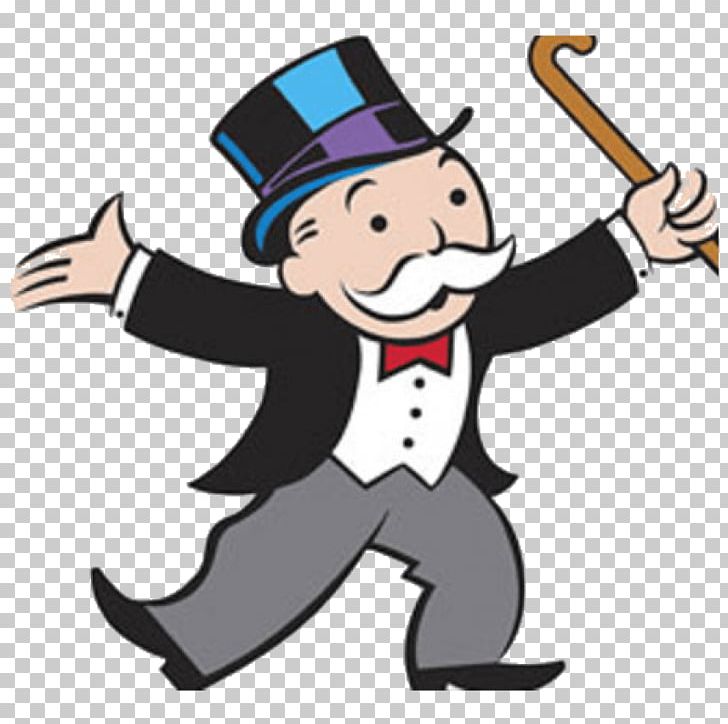
The Social Harm of Market Power
Perfectly Competitive Market


- In a competitive market in long run equilibrium:
- Economic profit is driven to $0; resources (factors of production) optimally allocated
- Allocatively efficient: \(p=MC(q)\), maximized CS \(+\) PS
- Productively efficient: \(p=AC(q)_{min}\) (otherwise firms would enter/exit)
The Bad of Monopoly: DWL I

Consider a market with some simplified cost assumptions:
- No fixed costs, constant variable costs
- implies \(\color{red}{MC(q)=AC(q)}\)
If this was a competitive market, firms would set \(p_c=MC(q)\) and (collectively), industry would produce \(q_c\)
- Consumer surplus maximized
The Bad of Monopoly: DWL II

A monopolist faces the entire market demand and sets \((q_m,p_m)\):
- Sets \(MR(q)\) \(=\) \(MC(q)\) at \(q_m\)
- Raises price to maximum consumers are WTP (Demand): \(p_m\)
Restricts output and raises price, compared to competitive market
Earns monopoly profits (\(p>AC\))
Loss of consumer surplus
The Bad of Monopoly II

- Deadweight loss of surplus destroyed from lost gains from trade
- Consumers willing to buy more than \(q_m\), if the monopolist would lower prices!
- Monopolist would benefit by accepting lower prices to sell more, but this would yield less than maximum profits
The Bad of Monopoly II

- Deadweight loss of surplus destroyed from lost gains from trade
- Consumers willing to buy more than \(q_m\), if the monopolist would lower prices!
- Monopolist would benefit by accepting lower prices to sell more, but this would yield less than maximum profits
The Bad of Monopoly: X-Inefficiency

“The best of all monopoly profits is a quiet life” - Sir John Hicks
Monopoly may generate “X-inefficiency”
Lack of competition causes monopoly to be complacent or lazy
- May inefficiently raise costs of production
Creates further distortions (lost surpluses)
In General
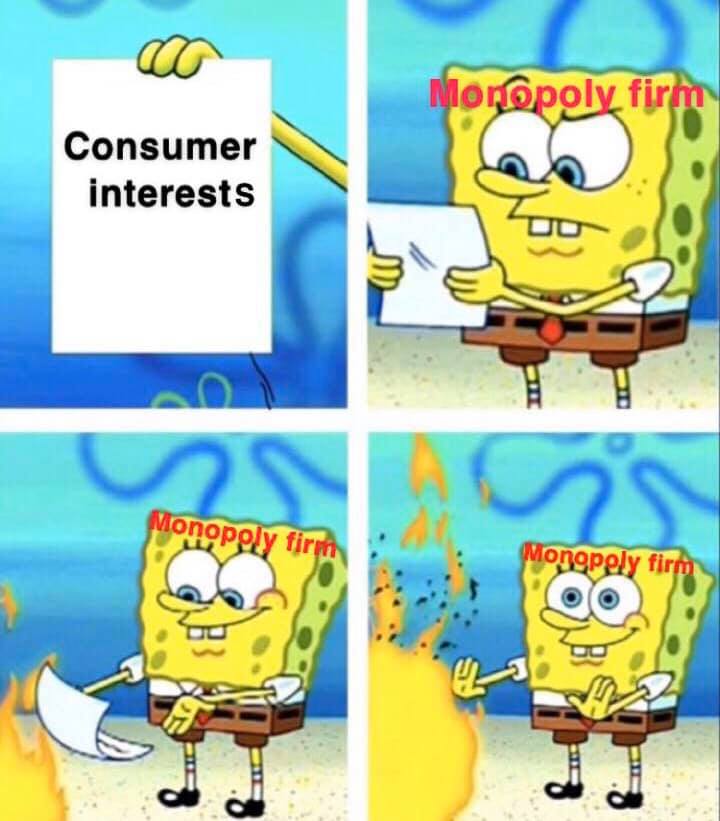
What Is a Monopoly?
What Is a Monopoly?
Everyone (economists & the public alike) generally agree that monopoly is bad
But what is a monopoly?
A surprisingly difficult question to answer!
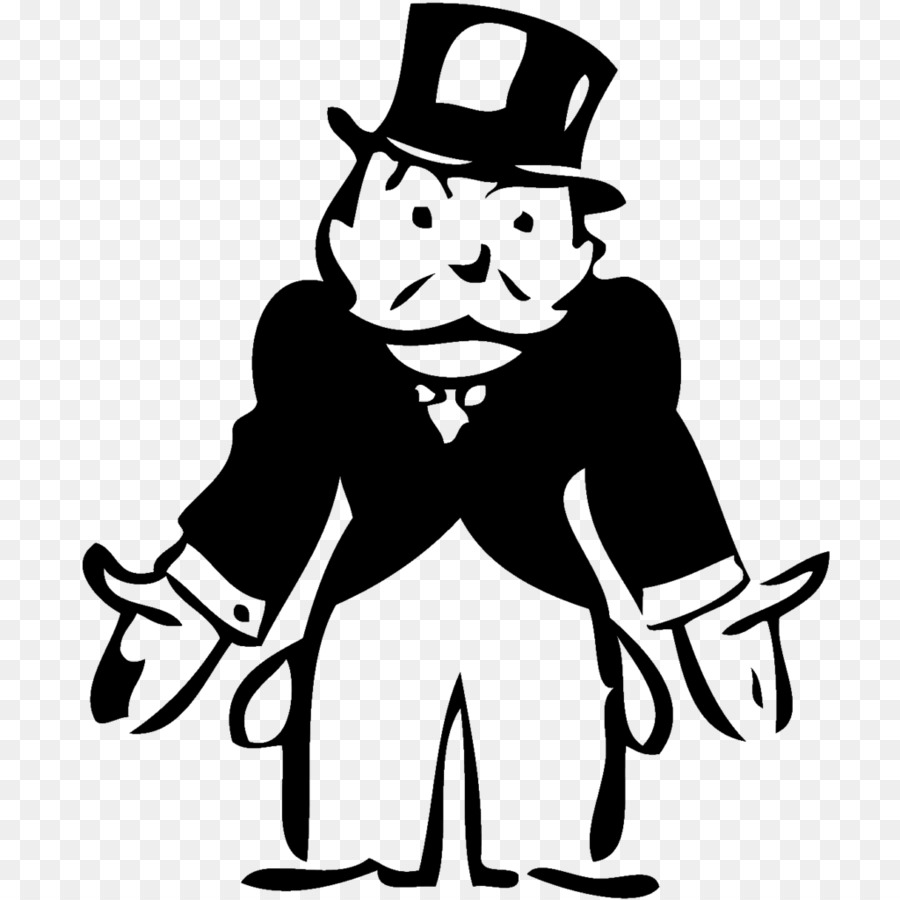
In Ye Olde Days

Lord Edward Coke
1552--1634
Chief Justice (King's Bench)
“A monopoly is an institution or allowance by the king, by his grant, commission, or otherwise...to any person or persons, bodies politic or corporate, for the sole buying, selling, making, working, or using of anything, whereby any person or persons, bodies politic or corporate, are sought to be restrained of any freedom or liberty that they had before, or hindered in their lawful trade,” (181).
Coke, Edward, 1648, Institutes of the laws of England, Part 3
In Ye Olde Days
"[A man lives] in a house built with monopoly bricks, with windows...of monopoly glass; heated by monopoly coal (in Ireland monopoly timber), burning in a grate made of monopoly iron...He washed himself in monopoly soap, his clothes in monopoly starch. He dressed in monopoly lace, monopoly linen, monopoly leather, monopoly gold thread...His clothes were dyed with monopoly dyes. He ate monopoly butter, monopoly currants, monopoly red herrings, monopoly salmon, and monopoly lobsters. His food was seasoned with monopoly salt, monopoly pepper, monopoly vinegar...He wrote with monopoly pens, on monopoly writing paper; read (through monopoly spectacles, by the light of monopoly candles) monopoly printed books," (quoted in Acemoglu and Robinson 2011, pp.187-188).
Hill, Christopher, (1961), The Century of Revolution
Acemoglu, Daron and James A Robinson, 2013, Why Nations Fail
Isn’t a Single Seller a Monopolist?
Isn’t the only seller of something a monopolist?
- A new inventor?
- An artist?
- LeBron James?
- First-mover?
Is the only hardware store in town a monopoly? Seafood restaurant?
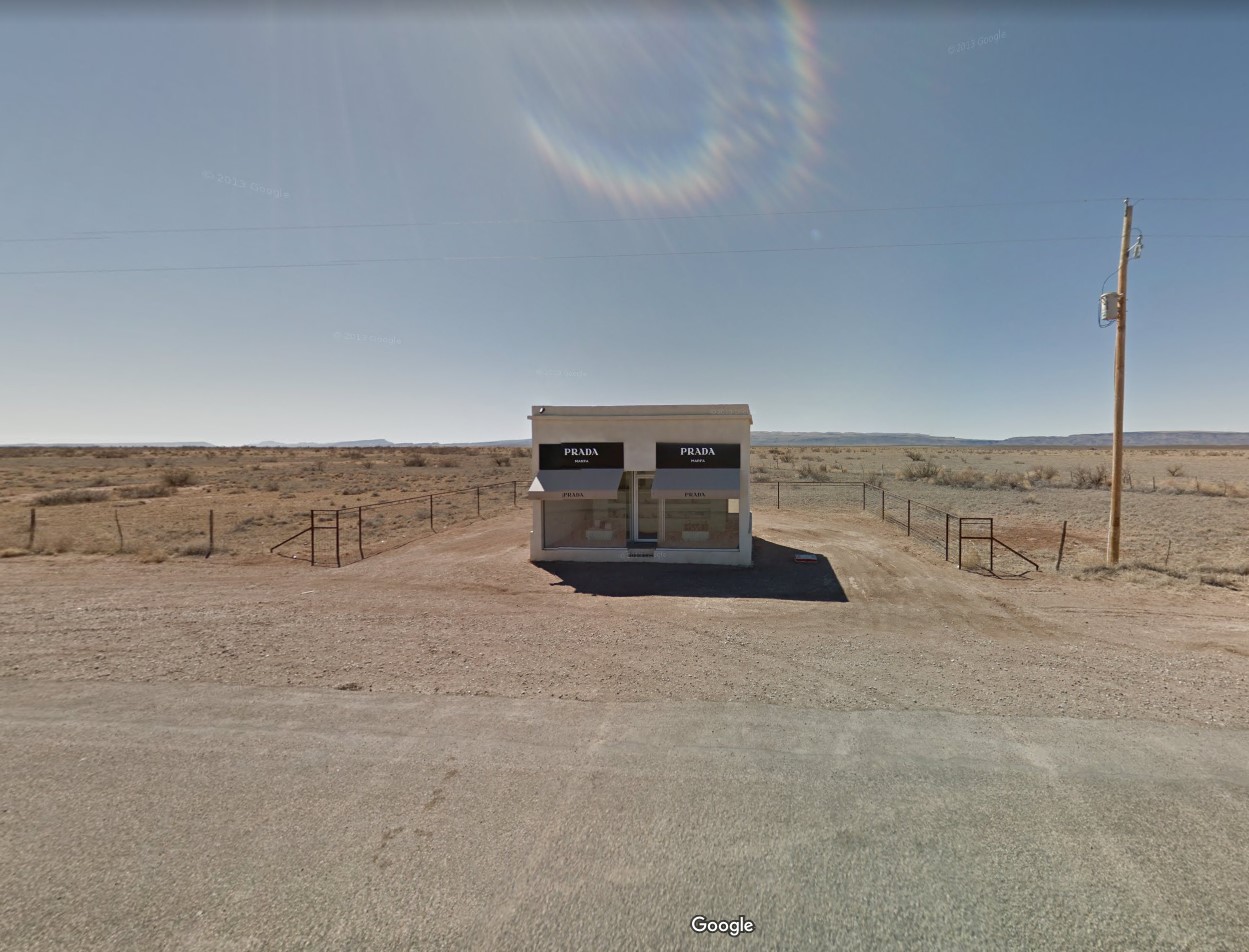
Markets as an Evolutionary Process
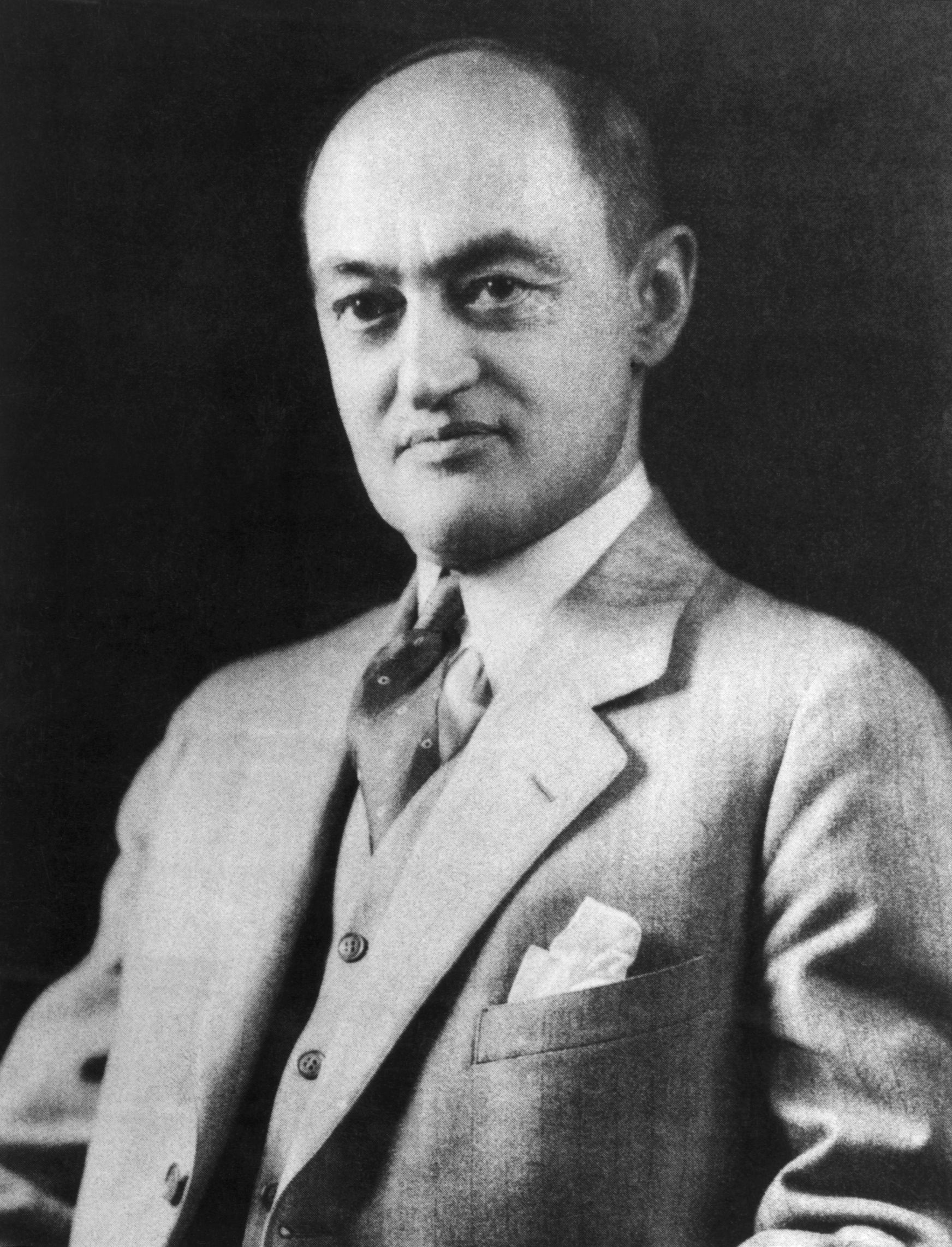
Joseph Schumpeter
1883-1950
"Capitalism...is by nature a form of economic change and not only never is but never can be stationary...The essential point to grasp is that in dealing with capitalism we are dealing with an evolutionary process.," (pp.82).
"[I]n capitalist reality as distinguished from its textbook picture, it is not that kind of competition which counts but the competition from the new commodity, the new technology, the new source of supply, the new type of organization...competition which commands a decisive cost or quality advantage which strikes not at the margins of the profits and the outputs of the existing firms but at their foundations and their very lives." (p.132).
Schumpeter, Joseph A, (1947), Capitalism, Socialism, and Democracy
Creative Destruction

Joseph Schumpeter
1883-1950
"Industrial mutation--if I may use that biological term—that incessantly revolutionizes the economic structure from within, incessantly destroying the old one, incessantly creating a new one. This process of Creative Destruction is the essential fact about capitalism. It is what capitalism consists in and what every capitalist concern has got to live in" (p.83).
Schumpeter, Joseph A, (1947), Capitalism, Socialism, and Democracy
Creative Destruction: Examples
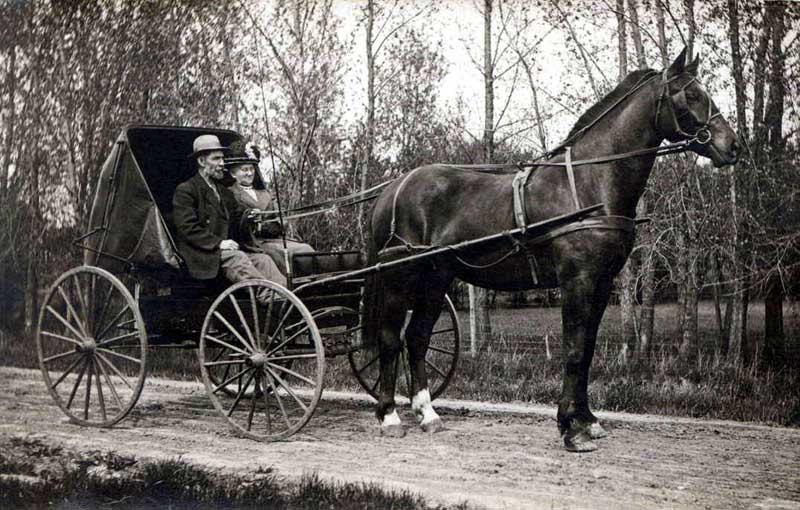

Creative Destruction: Example II
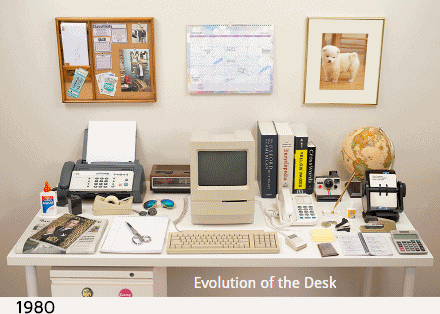
Creative Destruction: Example III

59 years of progress
No Corporate Monolith Lasts Forever (On Its Own)
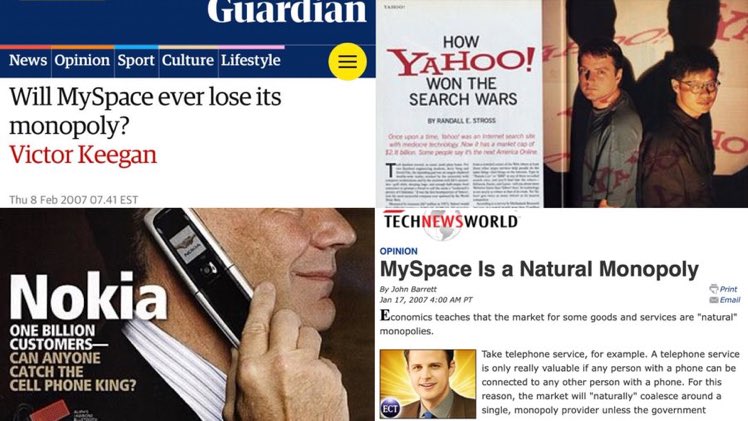
No Corporate Monolith Lasts Forever (On Its Own)

No Corporate Monolith Lasts Forever (On Its Own)
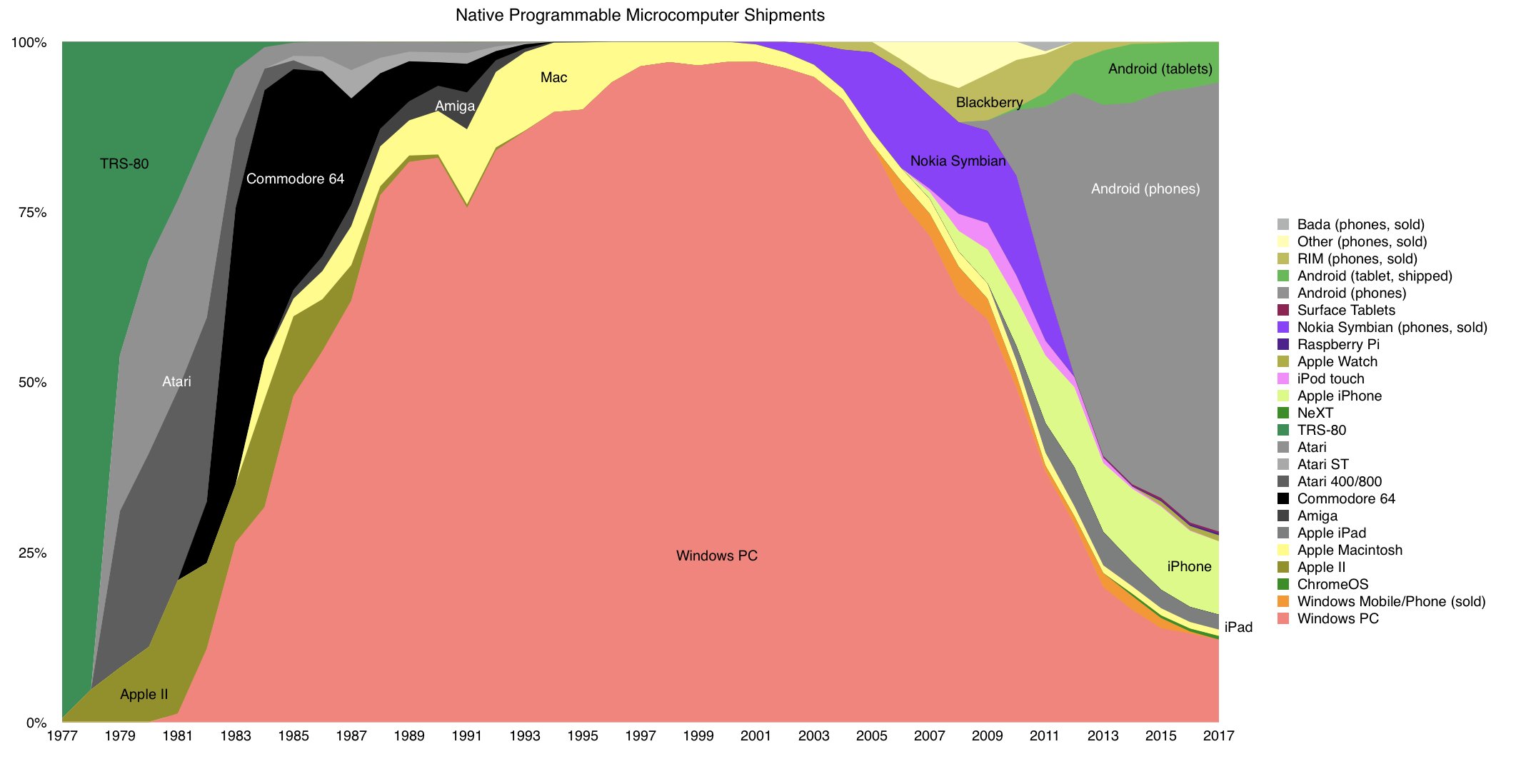
Monopoly Persists Because of Entry Barriers
Monopoly exists, and persists, because of barriers to entry
- otherwise, profits would get competed away by competitors
Some might be natural, some might be good, some might be artificial or government-created
- “open” vs. “closed” monopoly
How easy is it to enter and compete with existing firm?

Monopoly Exists Because of Entry Barriers
Some possible types of entry barriers:
- Control over key resource
- Technological superiority
- Name/brand recognition, high fixed/sunk costs, economies of scale, network externalities
- Government regulation
- Intellectual property rights, occupational licensing, public franchises, burdensome compliance, rent-seeking
Which of these are “natural” vs. “artificial?”
Which of these may be “good” vs. “bad?”
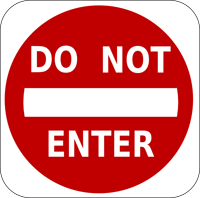
Control Over a Key Resource




Aluminum Company of America (Alcoa) once controlled 90% of the market for bauxite (used to create aluminum), and produced 63% of world aluminum supply
De Beers once owned 85% of the world's diamond supply
Quite rare for a single firm to control key resources for long
What If You’re Just Better?
Economies of Scale and Natural Monopoly I
Recall: economies of scale: as \(\uparrow q\), \(\downarrow AC(q)\)
Minimum Efficient Scale (MES): \(q\) with the lowest \(AC(q)\)

Economies of Scale and Natural Monopoly I
Recall: economies of scale: as \(\uparrow q\), \(\downarrow AC(q)\)
Minimum Efficient Scale (MES): \(q\) with the lowest \(AC(q)\)
If MES is small relative to market demand...
- AC hits Market demand during diseconomies of scale...

Economies of Scale and Natural Monopoly I
Recall: economies of scale: as \(\uparrow q\), \(\downarrow AC(q)\)
Minimum Efficient Scale (MES): \(q\) with the lowest \(AC(q)\)
If MES is small relative to market demand...
- AC hits Market demand during diseconomies of scale...
- ...can fit more identical firms into the industry!

Economies of Scale and Natural Monopoly I
- If MES is large relative to market demand...
- AC hits Market demand during economies of scale...
- likely to be a single firm in the industry!

Economies of Scale and Natural Monopoly I
If MES is large relative to market demand...
- AC hits Market demand during economies of scale...
- likely to be a single firm in the industry!
A natural monopoly that can produce higher \(q^*\) and lower \(p^*\) than a competitive industry!

Economies of Scale and Natural Monopoly II
Example: Imagine a single isolated condo complex with 1,000 units far from any other buildings or telco infrastructure
- Fixed costs: laying cable to the complex is $100,000
- Marginal costs: connecting each unit: $0

Economies of Scale and Natural Monopoly II
- Suppose 10 providers split the complex, each laying down their own cables, and each serving 100 units:
$$\mathbf{\text{Average cost}}=\frac{\$100,000}{100}=\$1,000 \text{/subscriber}$$

Economies of Scale and Natural Monopoly II
- Suppose 1 provider serves the complex serving all 1,000 units:
$$\mathbf{\text{Average cost}}=\frac{\$100,000}{1000}=\$100 \text{/subscriber}$$

Regulating Natural Monopolies
Governments avoid "wasteful duplication" of competition, grant exclusive franchises, a single monopolist allowed in geographic region
Provider made a common carrier: monopolist must provide universal service to all
Rate of return regulation: gov't and monopolist agree on a price to guarantee a "modest return on capital" (i.e. some \(\pi>0)\)
- Attempting to \(\uparrow q\) and \(\downarrow p\)
- Prohibition on price discrimination, enforced subsidies

Technological Superiority & Innovation
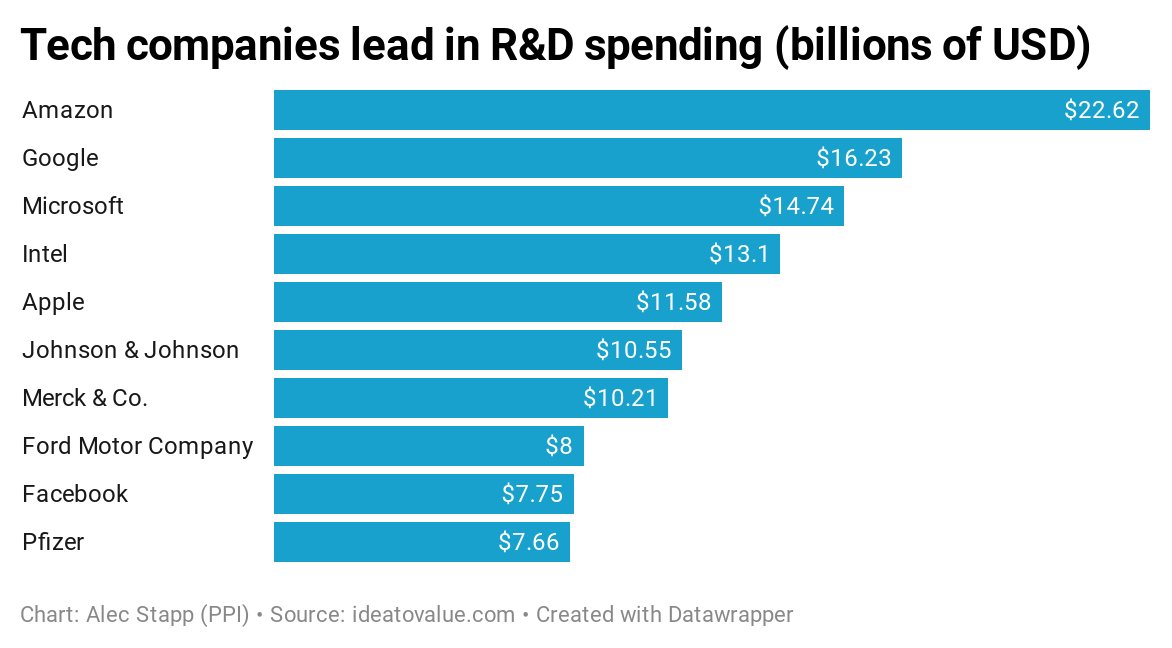
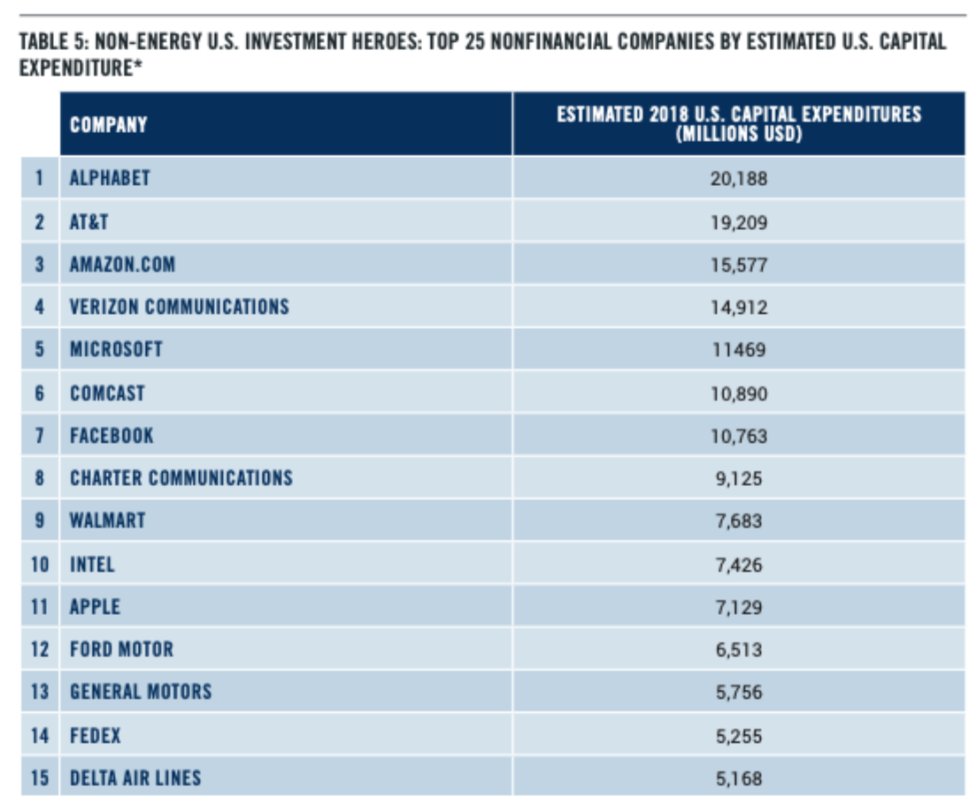
Complacent monopolists would rather restrict output and raise profits to shareholders
But big tech firms invest enormous amounts in capital & innovation! Worried about competition!
Innovation
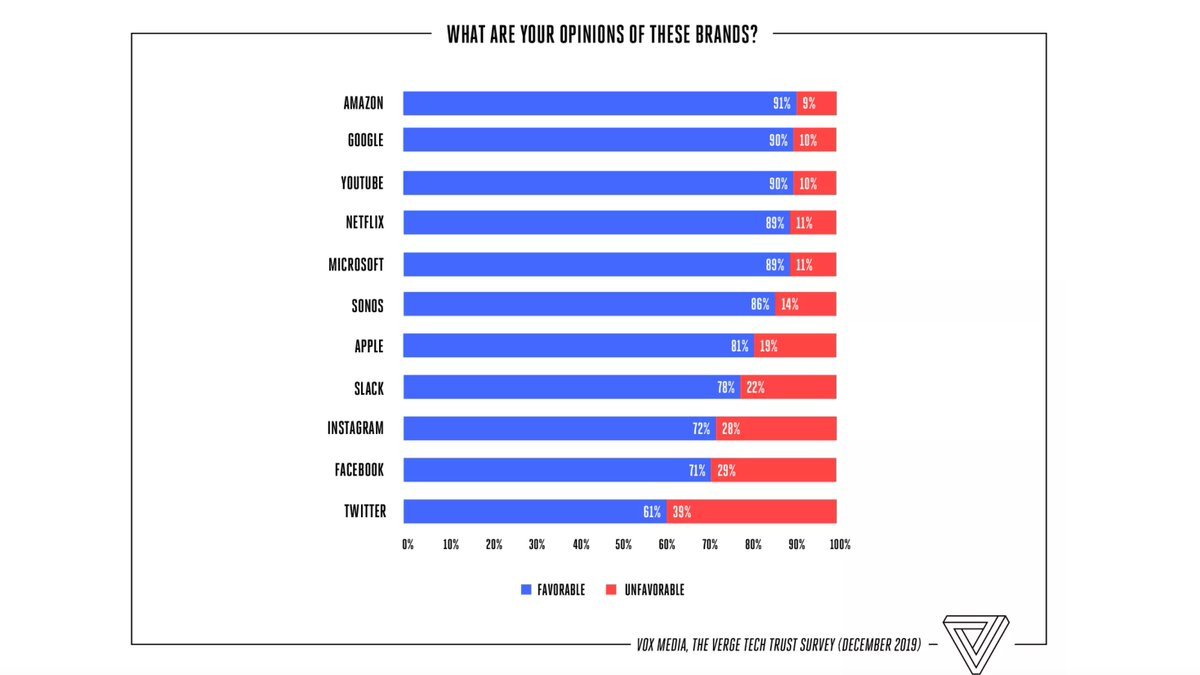
- Politicians may say one thing, but people like big tech companies, they provide an enormous amount of consumer surplus!
Intellectual Property I


Intellectual Property II

Intellectual Property III
For these economic reasons, patent (for ideas and inventions) and copyright (for expressions) laws exist
Grant temporary monopoly to holder in order to recover their fixed costs and provide incentive to undertake (risky and expensive) research/creativity
A utilitarian tradeoff between incentives and access


The Ugly of Monopoly: Rent-Seeking
Legal Prohibitions

The United States Postal Service is the only provider of first class mail allowed by order of the government
Starting another business that delivers mail is illegal
Note: FedEx and UPS deliver express packages, can not deliver mail or use USPS mailboxes
Taxis I


Taxis II

Taxis III


Occupational Licensing I

In 1950, 1 in 20 jobs required a license. Today it's 1 in 4. Source: Obama White House (2015): Occupational Licensing: A Framework for Policymakers
Occupational Licensing II
Occupational Licensing III

Occupational Licensing IV

"'It is illegal in the state of Utah to do any form of extensions without a valid cosmetology license," the e-mail read. "Please delete your ad, or you will be reported.'
To get a license, Jestina would have to spend more than a year in cosmetology school. Tuition would cost $16,000 dollars or more."
Source: NPR Planet Money
The Ugly of Monopoly: Rent-Seeking I

The monopoly profits earned with market power are an economic rent
- Comes from restricting entry & competition
This is the “prize” of market power
The Ugly of Monopoly: Rent-Seeking II

Think of an economic rent as a “prize,” the payment a person receives for a good above its opportunity cost
Creating rents creates competition for the rents, causing people to invest resources in rent-seeking
The cost of the rent is not just the rent itself, but the resources invested in rent-seeking!
Government Intervention Creates Rents I

Political authorities intervene in markets in various ways that benefit some groups at the expense of everyone else
- subsidies to groups (often producers)
- regulation of industries
- tariffs, quotas, and special exemptions from these
- tax breaks and loopholes
- conferring monopoly and other privileges
See Mitchell (2013) in today's readings for examples
Government Intervention Creates Rents I

These interventions create economic rents for their beneficiaries by restricting competition
This is a transfer of wealth from consumers/taxpayers to politically-favored groups
The promise of earning a rent breeds competition over the rents (rent-seeking)
- investments of resources to lobby political officials
Rent-Seeking II

Gordon Tullock
1922-2014
“The rectangle to the left of the [Deadweight loss] triangle is the income transfer that a successful monopolist can extort from the customers. Surely we should expect that with a prize of this size dangling before our eyes, potential monopolists would be willing to invest large resources in the activity of monopolizing. ... Entrepreneurs should be willing to invest resources in attempts to form a monopoly until the marginal cost equals the properly discounted return,” (p.231).
Tullock, Gordon, (1967), "The Welfare Cost of Tariffs, Monopolies, and Theft," Western Economic Journal 5(3): 224-232.
If You Look at the World Long Enough...

Regulation has a Dark Side

George Stigler
1911-1991
Economics Nobel 1982
"[A]s a rule, regulation is acquired by the industry and is designed and operated primarily for its benefits," (p.3).
Stigler, George J, (1971), "The Theory of Economic Regulation," Bell Journal of Economics and Management Science 3:3-21
Antitrust
Antitrust and Competition Law I
Aren't monopolies illegal in the U.S.?
Yes: engaging in anticompetitive practices in the U.S. is illegal under antitrust laws
- Laws intended to promote economic competition and reduce excessive market power
- enforced by DOJ (criminal) and FTC (civil)


Antitrust and Competition Law II
Aren't monopolies illegal in the U.S.?
No: most monopolies exist because of explicit or implicit government-backing
- Some markets actually work better as a monopoly ("the good", natural monopoly, patents, etc.)
- Some markets and regulators are captured via rent-seeking firms to block competition ("the ugly")

Antitrust and Competition Law III

Sherman Antitrust Act (1890)
\(\S\) 1: "Every contract, combination in the form of trust or otherwise, or conspiracy, in restraint of trade or commerce among the several States, or with foreign nations, is declared to be illegal."
\(\S\) 2: "Every person who shall monopolize, or attempt to monopolize, or combine or conspire with any other person or persons, to monopolize any part of the trade or commerce among the several States, or with foreign nations, shall be deemed guilty of a felony [...]"
26 Stat. 209, 15 U.S.C. (\S) 1–7
Antitrust and Competition Law IV

Source: WSJ (Jan 23, 2017)
- Mergers, acquisitions, and major corporate activities are scrutinized by DOJ and FTC on antitrust grounds






